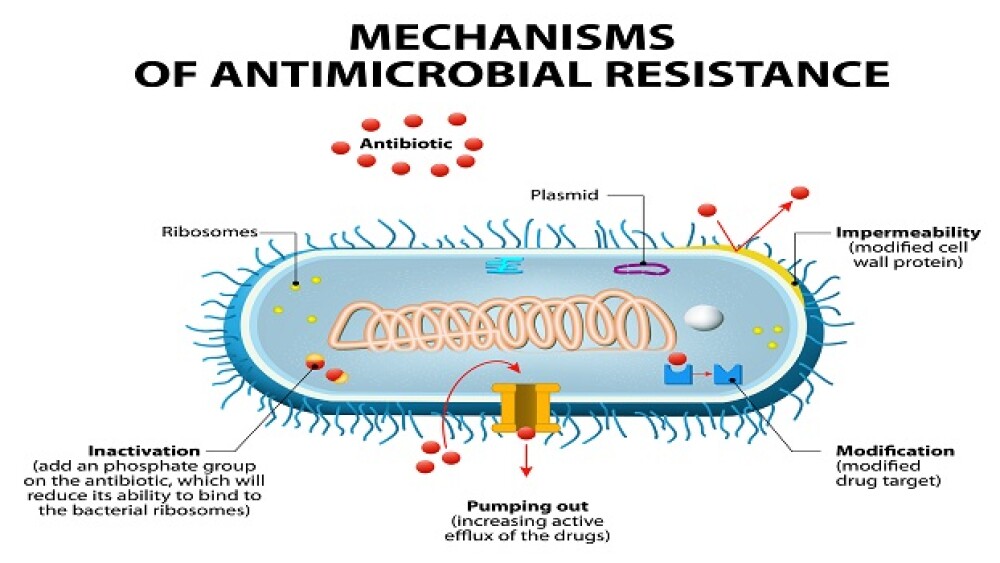Arc Bio launched its proprietary antimicrobial resistance (AMR) software. It is the first in what it expects to be a series of next-generation sequencing (NGS)-based products for pathogen detection.
Arc Bio, with offices in Menlo Park, California and Cambridge, Massachusetts, launched its proprietary antimicrobial resistance (AMR) software. It is the first in what it expects to be a series of next-generation sequencing (NGS)-based products for pathogen detection.
The product is Galileo AMR detection software. It offers fast, accurate annotations for gram-negative bacteria DNA sequence in less than five minutes.
The company was co-founded by Carlos Bustamante, a population geneticist and professor of Biomedical Data Science, Genetics, and Biology at Stanford University. He is the Inaugural Chair of the Department of Biomedical Data Science. His co-founder is David Andrew Sinclair, professor of Genetics at Harvard University and founding director of the Paul F. Glenn Laboratories for the Biological Mechanism of Aging. Both are on Arc Bio’s Scientific Advisory Board (SAB).
“At Arc Bio, we are on a mission to improve the human condition by delivering new tools that profoundly change how disease is diagnosed, treated and managed,” said Todd Dickinson, the company’s chief executive officer, in a statement. “The launch of Galileo AMR is our first step towards achieving this goal. As the CDC reports, every year over 2 million people are infected by antibiotic-resistant bacteria, causing more than 23,000 deaths in the U.S. Rapid identification of various strains of antimicrobial resistance, and better understanding their transmission and evolution is vital to protecting public health.”
Galileo AMR was acquired from Spokade, where it was known as MARA. It offers an extensive archive of expert-validated gram-negative AMR genes, cassettes and other mobile elements. The software combines advanced analytics in a user-friendly interface that can quickly and efficiently detect AMR in gram-negative bacteria, annotate AMR genes and other mobile elements in DNA sequences of any length and accurately annotate plasmid AMR insert sequences.
The company has a deep SAB, besides Bustamante and Sinclair. It includes Yaniv Erlich from Columbia University, Ami Bhatt from Stanford, David Relman from Stanford, Christopher Mason from Weill Cornell, David Pryor from Ascension Health, Bob Kain from Luna DNA, Dan Rokshar from the Department of Energy’s Joint Genome Institute (DOE JGI), Ed Green from the University of California Santa Cruz (UCSC) and Beth Shapiro of UCSC.
Arc’s announcement, which is offering a new diagnostic modality for identify antibiotic-resistant gram-negative bacteria, underlines recent movement in the anti-infectives market. On May 1, the U.S. Food and Drug Administration (FDA) granted SCYNEXIS’ oral formulation of SCY-078 to treat vulvovaginal candidiasis (VVC) and recurrent VVC both Qualified Infectious Diseases Product (QIDP) and Fast Track Designation.
Iterum Therapeutics, headquartered in Dublin, Ireland, with locations in Chicago and Connecticut, presented two posters at the European Congress of Clinical Microbiology in April regarding their new antibiotic therapy for urinary tract infections, sulopenem. The company also recently filed for an initial public offering (IPO), hoping to raise $92 million to advance sulopenem’s oral and IV formulations into Phase III clinical trials.
In early April, Ferring Pharmaceuticals, headquartered in Saint-Prex, Switzerland, bought Roseville, Minnesota’s Rebiotix. Ferring focuses on gastroenterology and urology. As part of the deal, Ferring picked up Rebiotix’s lead program, RBX2660, a non-antibiotic treatment to prevent recurring Clostridum difficile infection (CDI). It is currently in a Phase III trial. It has Fast Track, Breakthrough Therapy and Orphan Drug Designations by the FDA.
Also in April, Nabriva Therapeutics, headquartered in Dublin, Ireland, presented six abstracts at the 28th European Congress of Clinical Microbiology and Infectious Diseases (ECMID) describing its anti-infective agents, focusing on the pleuromutilin class of antibiotics.
And those are just a few examples of some companies’ interest in this area, although others are moving away from it. In mid-July, the Novartis Institutes for BioMedical Research (NIBR) announced it was ending its early-stage anti-infectives research programs located in Emeryville, California. As a result, the company planned to lay off about 140 employees.
In a statement, Novartis said, “The groups that are impacted in their entirety are antibacterial and antiviral research. As a result, other groups are also affected including, Pharmacology, Protein Sciences, Project Management and global support functions in Global Discovery Chemistry, NIBR Informatics, Scientific Operations and Translational Medicine. About 150 employees will remain in the San Francisco Bay Area in support of NIBR and our drug discovery efforts.”





